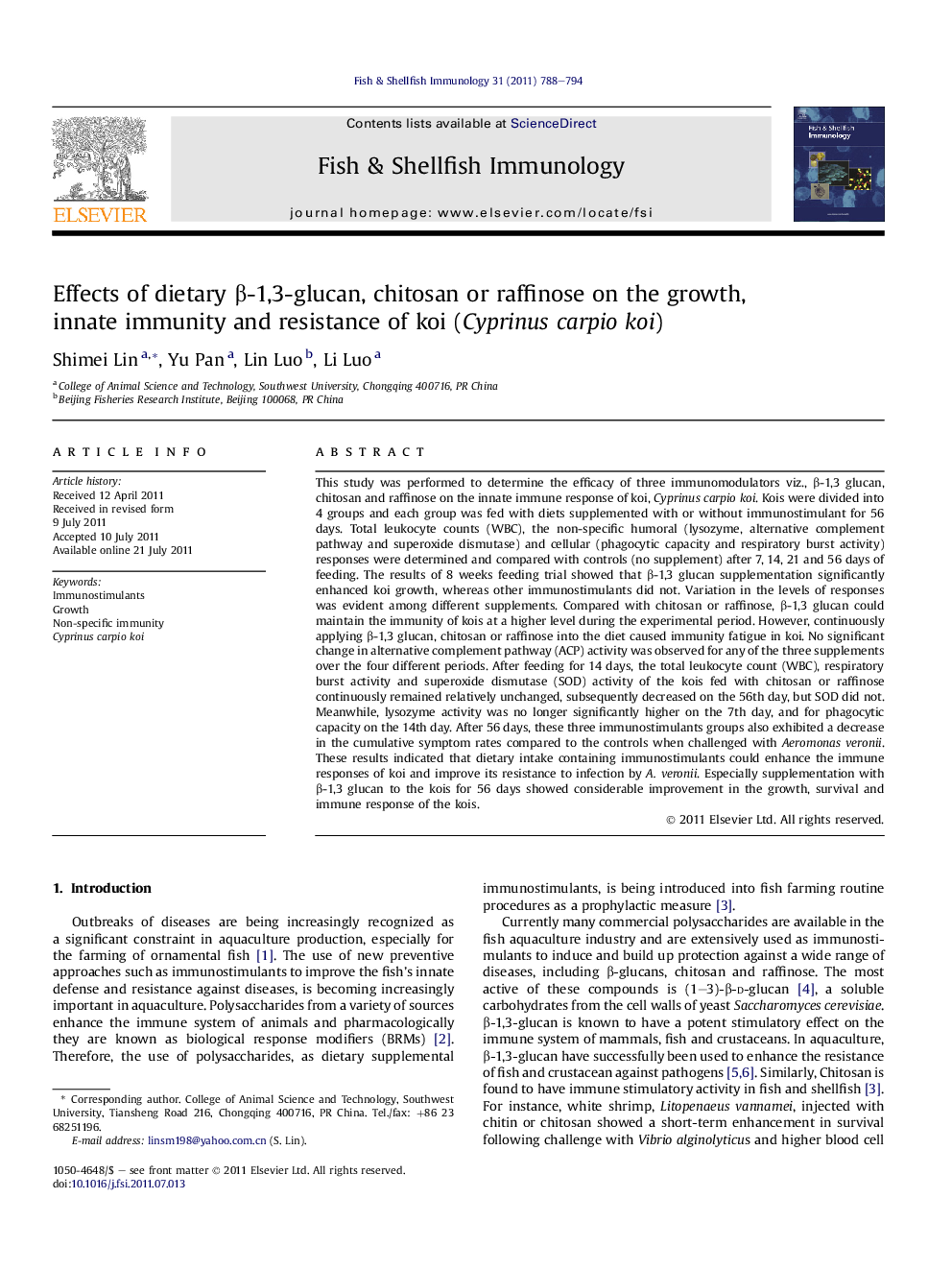| کد مقاله | کد نشریه | سال انتشار | مقاله انگلیسی | نسخه تمام متن |
|---|---|---|---|---|
| 2431903 | 1106775 | 2011 | 7 صفحه PDF | دانلود رایگان |

This study was performed to determine the efficacy of three immunomodulators viz., β-1,3 glucan, chitosan and raffinose on the innate immune response of koi, Cyprinus carpio koi. Kois were divided into 4 groups and each group was fed with diets supplemented with or without immunostimulant for 56 days. Total leukocyte counts (WBC), the non-specific humoral (lysozyme, alternative complement pathway and superoxide dismutase) and cellular (phagocytic capacity and respiratory burst activity) responses were determined and compared with controls (no supplement) after 7, 14, 21 and 56 days of feeding. The results of 8 weeks feeding trial showed that β-1,3 glucan supplementation significantly enhanced koi growth, whereas other immunostimulants did not. Variation in the levels of responses was evident among different supplements. Compared with chitosan or raffinose, β-1,3 glucan could maintain the immunity of kois at a higher level during the experimental period. However, continuously applying β-1,3 glucan, chitosan or raffinose into the diet caused immunity fatigue in koi. No significant change in alternative complement pathway (ACP) activity was observed for any of the three supplements over the four different periods. After feeding for 14 days, the total leukocyte count (WBC), respiratory burst activity and superoxide dismutase (SOD) activity of the kois fed with chitosan or raffinose continuously remained relatively unchanged, subsequently decreased on the 56th day, but SOD did not. Meanwhile, lysozyme activity was no longer significantly higher on the 7th day, and for phagocytic capacity on the 14th day. After 56 days, these three immunostimulants groups also exhibited a decrease in the cumulative symptom rates compared to the controls when challenged with Aeromonas veronii. These results indicated that dietary intake containing immunostimulants could enhance the immune responses of koi and improve its resistance to infection by A.veronii. Especially supplementation with β-1,3 glucan to the kois for 56 days showed considerable improvement in the growth, survival and immune response of the kois.
► We investigate the efficacy of three immunomodulators viz., β-1,3 glucan, chitosan and raffinose on kois.
► We determine the growth and the innate immune response of koi.
► The three immunostimulants could enhance the growth, the immune responses and resistance to infection by Aeromonas veronii.
► Compared with chitosan or raffinose, β-1,3 glucan could maintain the growth and the immunity of kois at a higher level.
► Continuously applying these immunostimulants into the diet caused immunity fatigue.
Journal: Fish & Shellfish Immunology - Volume 31, Issue 6, December 2011, Pages 788–794